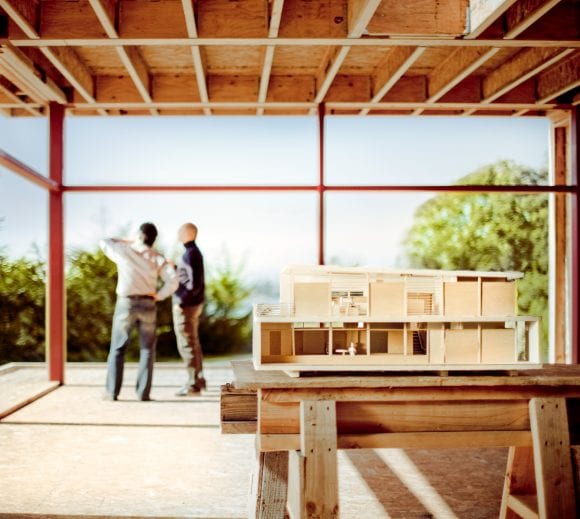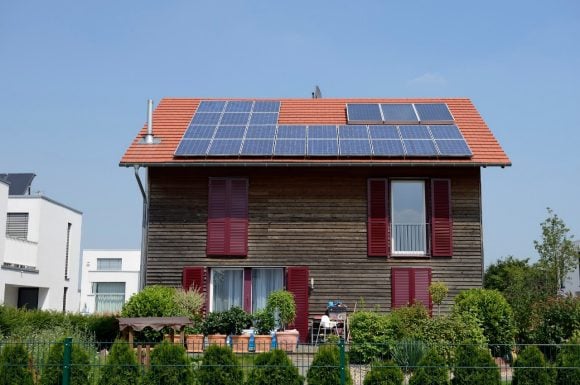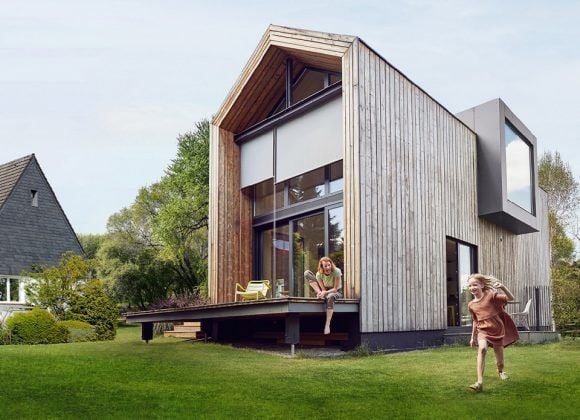The checklist for owners Building a house: important facts and tips
When building a house, you can do a lot of things wrong. But if you follow a few tips, you can avoid unpleasant surprises.
Content:
Content:
- The advantages and disadvantages of using a general contractor
- Using an architectural firm
- Read the contracts carefully and check on the progress of construction regularly.
- Sustainable construction costs more, but reduces running costs in the long term.
- Plan a financial buffer for unexpected expenses and enough time to check on the building progress.
- To the conclusion

If you hire an architect to build a house, you have full creative freedom. They are executors and advisors who help you realize your dreams. However, for this to happen, the client must be interested and have the necessary time.
If either is limited, another option is to use a general constructor. They will take on part of the risk and the owner’s tasks.
Building with a general contractor
A general contractor takes care of everything, including planning, organizing, hiring and paying tradespeople. If you don’t have much time and want to have your own turnkey home built, this option is the perfect choice for you. However, keep in mind that you will not have much say in the design.
This option is not risk-free, as in the event the general contractor goes bankrupt, the client is liable for unpaid invoices from tradespeople. It is up to the owner to protect themselves as well as possible contractually.
Building with an architect
Would you like more design freedom for your home? Then you should work together with an architect. But that also means that you will be responsible for handling more of the details. For example, you will have to pay tradespeople’s invoices directly.
Unfortunately there are often unpleasant surprises when building a house. Defects are often found too late or not spotted at all. And negative provisions in contracts (e.g., with a general contractor) only become apparent once they have already been signed.
In general, you should read contracts very carefully and ask if you do not understand certain sections. Even if your home is being built by a general contractor, you should take the time to closely monitor the construction progress. This also applies if you use an architect.
Choose your partner carefully
Whether architect or general contractor, you need to think carefully about your choice. It’s a good idea to look through the commercial registry and get information about your future partner from the debt enforcement office. You can also obtain references from clients who have already worked with the architect or general contractor you have in mind. A careful review of potential partners could spare you some unpleasant surprises during construction.
Sustainability is an important topic in construction. Buildings and infrastructure systems account for 40% of global resource consumption. But how sustainable should yours be? The legislation provides us with part of the answer: all cantons have issued energy requirements.
Minergie is a voluntary construction standard. Key aspects include a well-insulated building envelope, use of renewable energy and automatic ventilation. This can cut the energy consumption of a building by half compared to a standard construction.
According to RealAdvisor, the construction of a house in Switzerland costs between CHF 2,500 and CHF 4,000 per square meter – and the trend is upwards. This does not include the cost of the land or incidental expenses.
Land prices vary greatly in Switzerland. While a square meter of building land can be purchased for just a few hundred francs in rural areas, it can easily cost several thousand francs in large cities or premium locations.
Building always comes with surprises. If the builder has accidentally located a stanchion in the wrong place or the kitchen can’t be delivered, you’ve got to keep calm. However, the biggest stumbling block when building is you, the owner. Many owners realize only after the building shell is complete or the painter has already gone that a wall should be elsewhere or painted a different color. That’s why it’s worth allowing enough time to continuously check on the building progress as well as planning financial reserves for any unforeseen circumstances.
Prefabricated houses are popular in Switzerland: over 80 companies offer them. The offer is therefore very varied.
In the case of turnkey houses, the price should include everything. In the case of assembled houses, manufacturers only send you the building elements. When you buy such a self-assembly kit, you should check what is included and what isn’t. Sometimes what is advertised as a turnkey house will not include, e.g., flooring, painting or service connections in the price.
For many people, building a house is one of the most expensive and important events in life, with far-reaching consequences, especially financially. Therefore, it pays to invest enough time in planning and building your home. It’s better to double-check everything than to overlook a serious construction defect or be taken in by dubious partners. With a little effort, you can ensure that your dream home becomes a reality.


